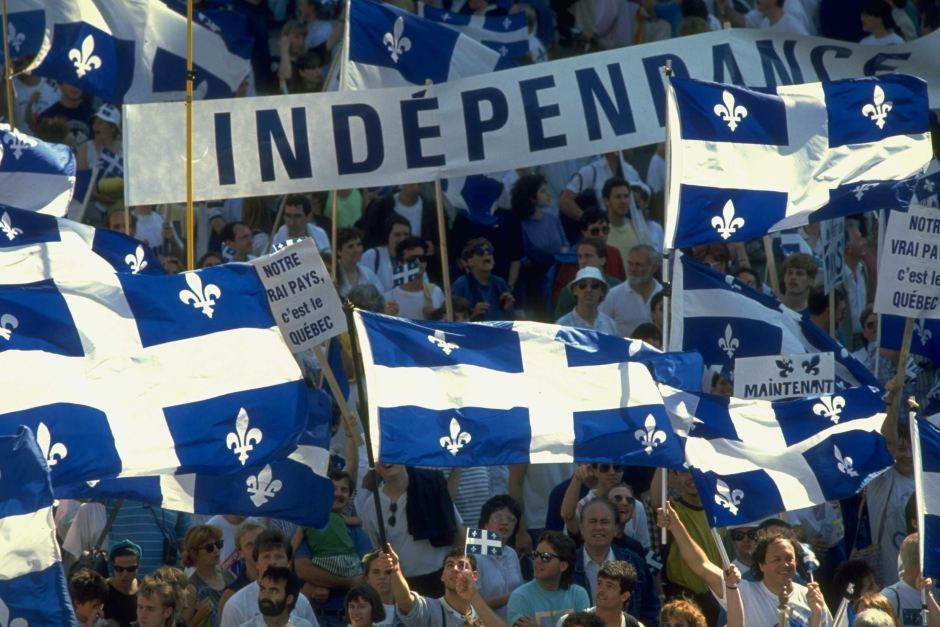The relations between India and Canada are deteriorating by the minute. The two countries have had a frosty relationship for the past few years, and ties between the two suffered another huge setback. In a shocking statement the Canadian Prime Minister Justin Trudeau on Monday accused the Indian government of supporting criminal activities in Canada.
India has unequivocally rejected Canada’s allegations, terming them as “absurd” and “politically motivated.” On Monday, Canada expelled six Indian diplomats and consular officials in connection with a probe of the killing of Khalistani terrorist Hardeep Singh Nijjar in British Columbia in 2023. India also announced its own decision to expel six Canadian diplomats, which include Canada’s Acting High Commissioner in India, Steward Ross Wheeler, Deputy High Commissioner in India Patrick Hebert, and First Secretary Marie Catherine Joly.
Trudeau’s wild accusations and India’s response
In September 2023, speaking in the Canadian Parliament Justin Trudeau had declared India guilty of the murder of Khalistani Hardeep Singh Nijjar. The shocking accusations were made without any official charge sheet or proof. In response, India swiftly retaliated by issuing a statement that denied any involvement in the issue, terming them “absurd and politically motivated.” The Ministry of External Affairs also indicated that Canada had consistently given space to anti-India extremists like Khalistanis.
The situation had deescalated over time but once again Trudeau has continued to stoke the fire by renewing his accusations. This time attacking India and trying to indict India’s envoys in the terrorist Hardeep Singh Nijjar case. Trudeau is also looking to indict India on the grounds of foreign interference in the Canadian election processes.
India, in turn has issued a strong rebuttal, condemning Trudeau’s government for its “absurd” and “preposterous imputations” accusing him of playing to a political agenda ahead of the next federal election in Canada. Trudeau’s popularity in his country has been sinking rapidly, with strong evidence of Chinese involvement in his government. Trudeau is also facing a coup in his own party and it seems in an attempt to divert the attention of the public and gain the Khalistani vote he has once again pulled out the anti India card. This is a recurring gimmick Trudeau feels he can latch on to everytime his position starts to become untenable.
The Quebec Movement
Justin Trudeau’s constant accusations will certainly push India to pursue its own robust strategy. The Quebec card has not been played by the Indian government so far. Quebec is a province of Canada that has for long had its own sovereignty movement. The Quebec movement is a political struggle whose primary objective is to achieve the independence of Quebec from Canada. Sovereignists suggest that the people of Quebec have the right to self-determination.
The history of the Quebec struggle can be traced back to the 1760s, when the British marched into Canada, clashed with the French during the French and Indian War, and won. Canada got sliced into two – Upper Canada (that was all British) and Lower Canada (which was French turf). Lower Canada is the modern-day Quebec.
Quebec sovereigntists believe that as a sovereign state, the Quebec nation, would be better equipped to promote its own economic, social, ecological, and cultural development. Quebec’s sovereignist movement is based on a strong sense of Quebec nationalism. The people of Quebec believe that their culture, identity, language etc is different from the rest of Canada and they have the right to have their own state centered to cater exclusively to its own populace.
The Khalistan Question
Previously Baijayant Jay Panda, the BJP National Vice President and former MP, had taken up the Quebec issue. In a post, Panda proposed, “In the spirit of friendship with Canada, we in India must consider facilitating an online referendum on the Quebec independence issue (in gratitude for their allowing Khalistani separatists to try the same on Canadian soil).”
He had also gone on to suggest that India should respond with a tit for tat to Canada, “Perhaps we should also offer Indian soil for the Quebec independence movement’s events commemorating their sacrifices, bombings, and assassination attempts (again, just like Canada has been so considerate to allow for the Khalistanis). This would also embellish the spirit of free speech so cherished in both our nations, & would help clarify the increasing support for an independent Quebec (as reported in media earlier this year)
India has always maintained that Trudeau’s constant allegations on India are absurd and the Canadian PM is himself providing a safe haven for terrorists and extremists involved in anti-India activities. Hardeep Singh Nijjar, the person Trudeau is so intent on defending was a known Khalistani and extremist figure. Trudeau is actively backing the organizations and individuals that are pushing for Khalistan on Canadian soil.
Extremists in Canada have a strong stake in the Trudeau government and hence a lot of his policies are dictated according to their wishes. Canada has the largest Sikh population outside of India, with about 770,000 people, or about 2.1 per cent of the country’s population. It is quite clear that the Canadian PM in his wild attempts to save his seat will do anything to woo the radical voter and is quite prepared to permanently damage India-Canada relations in the process. If Trudeau continues to press India there is bound to be a strong pushback, and this time it might be the Quebec question that will come to haunt the Canadian PM.
